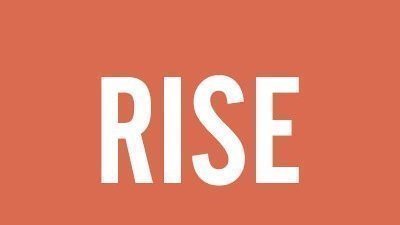| |||||||||||||||
| |||||||||||||||
NFL: Make Washington’s sexual misconduct investigation PUBLIC! Washington Football Team (WFT): Reinstate the cheerleaders and give them a seat at the table! The NFL must do the right thing and make the sexual misconduct investigation of the WFT public AND hold Dan Snyder accountable for the history of serial sexual harassment within his organization. The NFL along with the WFT employees, fans, alumni, and cheerleaders should stand up and disallow him from being a part of this historic franchise any longer. Ticket sales are at an all-time low and the name change controversy continues. It’s time to re-engage the fan base and create a winning game-day experience for everyone. This "rebranding" must include feedback and input from the women who have been on the sidelines supporting this team for more than a half-century.
These women aren’t just on the literal sidelines. They support local charities, and visit veterans and sick children in local hospitals. They create incredible value through youth outreach programs and put their lives at risk on overseas military tours to engage with and honor our servicemen and women. This cannot and must not stand. #NFLforwomensrights #WFTdotherightthing #evolvedontcancel | |||||||||||||||
| |||||||||||||||
|
In this blog, we'll look at how men and women at serving Jesus Christ both at home and abroad. We'll focus on how God is using their work to transform the lives of people all over the world.
Saturday, February 27, 2021
Change.org - NFL + sexual assault
Witness, Share and Evangelize: Today in the Mission Yearbook - Savannah students on the RISE
Witness, Share and Evangelize: Medical Missions Live - March 2 | MBF
Friday, February 26, 2021
Witness, Share and Evangelize: Today in the Mission Yearbook - Showers and blessings
WCC NEWS: Armenians fleeing war find open doors as churches offer shelter and hope
| ||||||||||||||||||||||||||
|
You have moral power!

We can’t wait for the 11 March global day of climate action. With religious people worldwide, you are showing what it means for people to put their beliefs into action.
Join grassroots, multi-faith activists on 3 March for our final Sacred People, Sacred Earth training call. We have calls in English, Spanish, and French at several times during the day to accommodate all time zones
We’ll have breakout sessions for both seasoned activists and newcomers, so no matter your experience level, we have a spot for you! You can also join the Sacred People, Sacred Earth Facebook group to connect with fellow activists and upload photos and videos of your action on 11 March.
We are amazed by the passion and creativity of the actions that are planned for 11 March. Here are a few examples:
Churches in Santiago and across Chile are ringing their bells at 11 a.m., signifying the urgency of “the 11th hour” on climate change.
Over 80 local events across Australia will involve churches ringing bells, sounding the azan - the Islamic call to prayer - and sounding gongs and chimes, all calling on the Prime Minister and Parliament to commit to net zero emissions by 2030.
In the UK, where there is a full COVID lockdown, various religious groups are planning webinars where they will express their call for climate justice.
In Zimbabwe, grassroots people of faith are organizing to oppose a new mining project that would devastate a national park and the nearby communities, and will call on local officials to oppose the project.
Diverse religious and spiritual communities in South Africa are organizing a participatory national call to highlight calls for climate justice on the Gates Foundation to end its support for industrial agriculture in Africa.
In the US, Buddhist and Christian communities in Colorado will ring their bells and sound their gongs at 11am local time, while in Florida, congregations near the state capital are ringing their bells to press the legislature for . In other US locations, religious groups are organizing socially-distanced actions to call for an end to Line 3, a proposed new fossil fuel pipeline.
What will your action be? Join the 3 March call to hear what others are planning and get all the resources you need to jump in with us!
See you there,
The GreenFaith Team
How the church can model lament
 |
Adam Russell Taylor This week the United States surpassed a tragic milestone: Half a million people in this country have died from COVID-19 — a number that, while devastating, doesn’t even take into account the full human toll of the virus. While numbers of cases, deaths, and hospitalizations have begun to fall precipitously (for a variety of overlapping reasons) and nearly 50 million Americans have received at least one dose of the vaccine, this dark winter feels like a prolonged wilderness of grief and loss. Since the pandemic began roughly a year ago, I have shed more tears than I have in my entire lifetime. Tears of grief for the loss of loved ones, including one of my mentors and beloved fraternity brothers Judge Horace Johnson. Tears of anguish over the widespread economic devastation and protracted hardships. Tears of righteous anger over deep denial and failures in leadership. As we mark this milestone of 500,000 COVID-19 deaths, it is important to explore how our nation and the church grieve such immense loss of life. We can’t, nor should we, simply move on. Individual and collective mourning is a critical part of how we process, how we remember, and how we heal. Further, collective grief can move us toward common purpose in this time marked by such profound division. For Christians, as we move through this season of Lent, it’s important not to become numb to the sheer scale of these numbers and lose sight of the reality that each death represents an individual person, loved by God and made in God’s image, who had parents and family and friends and whose loss has ripple effects across many lives. And on this side of eternity, each one of these beloved children of God has left behind a real void. Churches are on the front lines of helping parishioners cope with the magnitude of this personal and collective tragedy, even as what church looks like has evolved in the past year. Now it is church’s role to offer a template for what collective lament and community look like amid a global pandemic. The milestone of 500,000 American lives cut tragically short reminds us of Lent’s importance in a nation and world undergoing so much pain. The journey between now and resurrection Sunday must inevitably go through a wilderness of grief.
|
ADVERTISEMENT |
 |
Our Latest Witnesses to the Miracle of Blackness (by Danté Stewart) Black History Month is not just about learning from Black people; it's about creating a world where we feel loved, inspired, and protected. Grace Semler Baldridge Is Bringing Queer Stories to Christian Music (by Mitchell Atencio) Preacher's Kid dares to include songs about topics rejected by the contemporary Christian music industry. Sr. Dianna Ortiz, Torture Survivor and Activist, Dies at 62 (by Gina Ciliberto) Ortiz “turned her experiences of death into something that saved the lives of thousands of people,” said Rose Marie Berger. Dear Black Churches: We Can Overcome Vaccine Skepticism, Inequity (by Matthew Watley) Our churches must lead by providing accurate medical information and greater vaccine access. |
ADVERTISEMENT |
 |
From the Magazine Alternatives to Police Exist. You Just Haven't Heard of Them. (by Stephanie Russell-Kraft) How faith and community leaders are reimagining public safety. |
ADVERTISEMENTS |
Join a courageous conversation. Micah Intensives bring together Christian leaders and learners for a month of dynamic online training to discern God's will for us in response to pressing issues of justice. Topics include: Racism, Immigration, Mass Incarceration, Healthcare, Violence Against Women, and Environment. Deadline today! Submit your sermon on immigration. Few Christians have heard a sermon supporting immigrant people. We’re out to change that. Today’s the deadline. Submit your sermon now! |
|
Copyright © 2021 Sojourners, All rights reserved. Sojourners | 408 C St. NE | Washington, DC 20002 Email: sojourners@sojo.net | Tel.: 202.328.8842 |
Thursday, February 25, 2021
Change.org - Sexual assault bill
| |||||||||||||||
| |||||||||||||||
In Arizona, sexual assault survivors are not guaranteed to receive their civil rights. They are left to navigate a system with a patchwork of policies largely on their own. As reports of sexual violence have only increased in AZ and around the world during COVID, survivors in AZ need civil rights protections now more than ever. Currently, there are two bills that have been introduced to the Arizona House of Representatives, HB2600 and HB2849, to ensure these rights in our state. Even though this bill has bipartisan support in the House and Senate, it must be heard in committee in order to be voted on and passed. Right now, the bill does not have a hearing date and the head of the Judiciary Committee, who can assign it a hearing, is hospitalized. The rules for this deadline must be suspended and this bill must be given a hearing. This is imperative as survivors deserve to have these rights ensured. Arizona has the opportunity to pass a Sexual Assault Survivors’ Bill of Rights that will guarantee comprehensive, common sense civil rights for survivors. Rise’s Five Key Civil Rights: 1. The right to not have your rape kit destroyed before either 20 years or the statute of limitations has passed (whichever is longer). Over forty states have backlogs for untested kits. Some states do not cover the full medical expenses of a kit, leaving survivors to pay their own way towards justice. Most states destroy rape kits before the statute of limitations for the crime has passed. The lack of these rights has inspired us to act. This is a crisis for 25 million survivors across America, and it’s time for our legislators to do something about it. Sign this petition, then learn more at our website -- and if you have a few minutes to contribute to the cause, take a look here at the quick, easy, ways you can make an impact now! | |||||||||||||||
| |||||||||||||||
|
WCC News: WCC condemns violence against communities in Myanmar
The World Council of Churches (WCC) condemns military strikes against civilians and civilian areas in Myanmar. Photo: Albin Hillert/WCC 17 ...

-
Genocide, Worker Rights, and White Christian Nationalism NCC Newsletter July 2, 2021 Click here to donate Recent Interview with Jim Winkl...
-
As we enter this sacred season — a time when many traditions gather to celebrate light in the darkness, rest after a long year, and the endu...
-
View this email in your browser Welcome to the Truth and Action Roundup, a reliable weekly source of information, inspiration, and action f...







